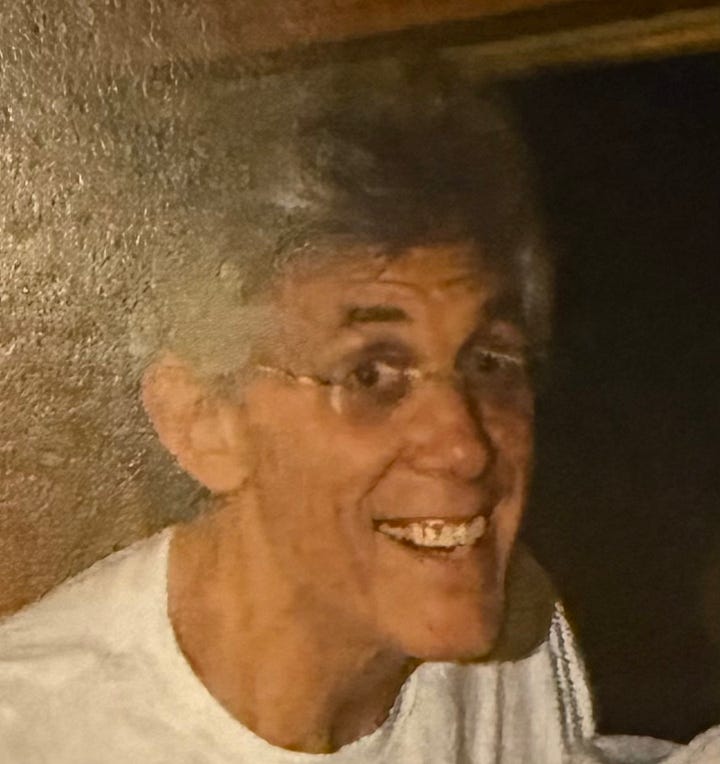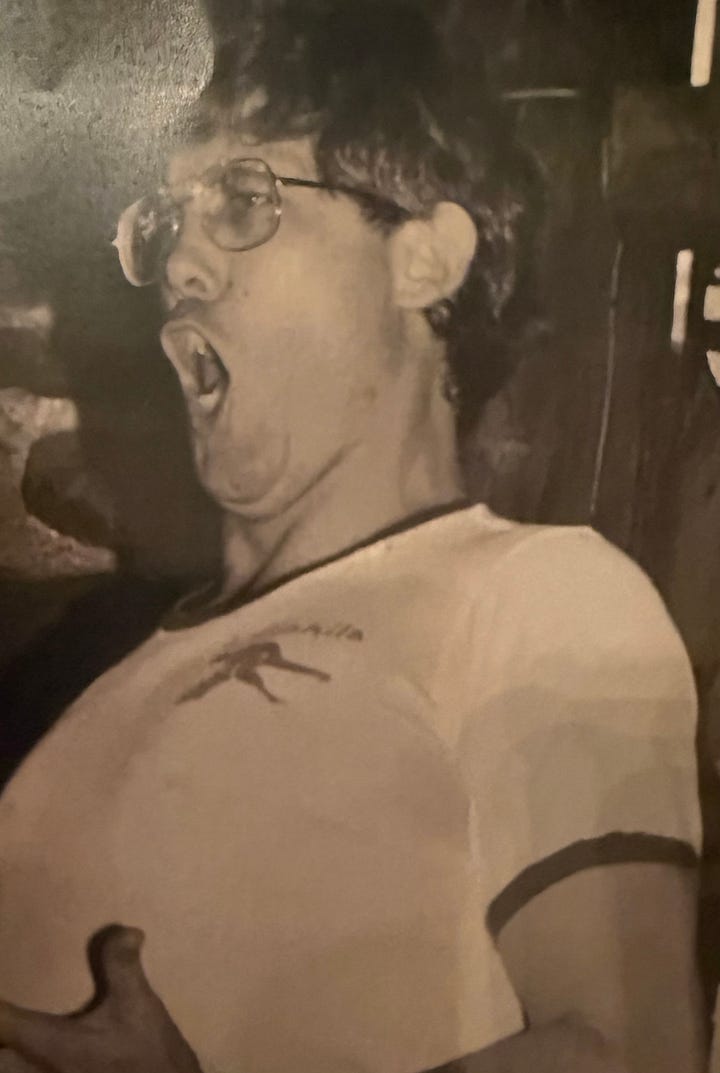Show Up, Tell the Truth, Release the Outcome
Life Lessons from Barnes Boffey, Camp Director
In the aftermath of the Camp Mystic tragedy in Texas, some of us are reflecting on the value of summer camps. What follows is a reflection on a summer camp that changed my life—and the man who led it.
In 1979, at the age of 11, I met a man who would prove to be, after my father, the most influential male role model in my life. His name was Barnes Boffey. He was the Director of Camp Lanakila in Fairlee, Vermont, and in the decade that followed, he—and the community of campers and counselors he inspired—would profoundly change how I saw the world, and my place in it.


Why did Barnes make such an impression? Well for starters he was 6’7” and weighed 270 pounds. He told fart jokes, and when he smiled his eyes opened a little too wide in a flash of conspiratorial delight. He was a walking carnival of a man—playful and silly and a dash irreverent, but at the same time deeply caring and deadly serious about the importance of doing the right thing.
I learned from Barnes that it is possible to be kind and generous to everyone, and at the same time have high standards. I learned that it was possible to build communities based not on victory over others, but victory over oneself.
Barnes Boffey died last summer on August 24th. Twelve days before he died, I had a conversation with him about how to live well, and how to die well. Though I recorded this conversation for the community of people who knew and loved Barnes, it is so dense with wisdom, I think it may be interesting to our broader community at the Next Big Idea Club.
Here are a few of my favorite insights from this conversation:
You have many personalities — artist, teacher, cowboy, warrior. Embrace them all.
When you encounter a new challenge, do the following: show up, pay attention, tell the truth, and release the outcome.
If you tell the truth with humility, you are “speaking your truth.” To do so, say: Here’s what I see. Here’s what I think when I see that. Here’s what I feel when I think that. You may see and think and feel something else. This is my truth, and I am open to hearing yours.
Every day you have a chance to do 100 nice things for other people. What a joy for you, and what a joy for them!
A good leader knows that power is non-zero-sum. Empower those you lead to make their own decisions, and you will still have power left over.
Doing the right thing always takes more time, always costs more money, and it’s always harder. But once you accept that—and experience the deep gratification and long term benefits of doing the right thing—you never want to go back.
Dying is part of living, and we have an opportunity to do it well just as we have an opportunity to do anything else well.
You can watch the 15 minute highlights from my conversation with Barnes Boffey or the full hour and forty minute version.
Thoughts on the reflections above? Let’s discuss below.


For those of us who know Rufus, this post is revelatory. Barnes's spirit (not to mention appearance and wardrobe choices) live on!
Not being able to add to Mitchel’s insights…. I often reflect on the camp director and other staff members at the YMCA camp I went to and later worked at and the impact they still have on me. Including one former counselor and one former camper who are still around sixty years later. More generally, it is worth seeing ourselves—and presenting ourselves—as whole human beings. That said, there were no fart jokes at our YMCA camp, even one that had me, a nice Jewish bout, as its religious emphasis director one summer.